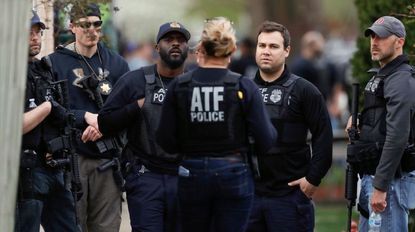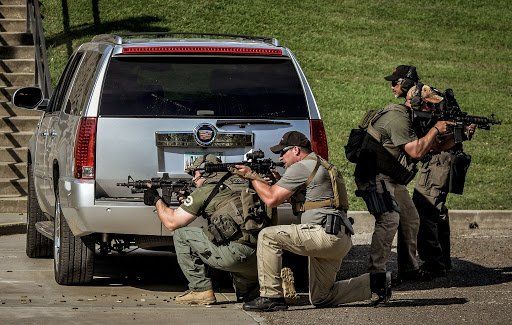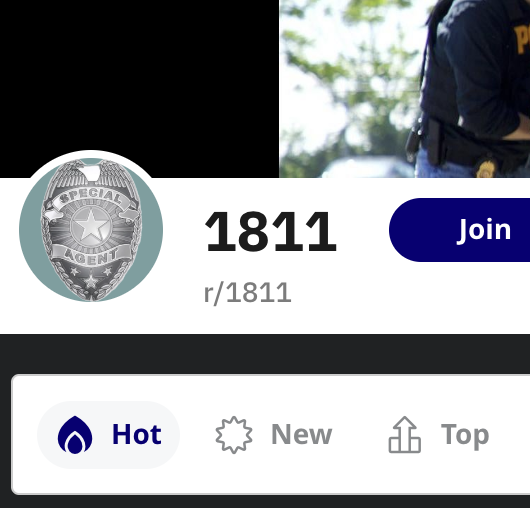This website is an independent educational resource and NOT affiliated with any official U.S. government agency.
Special Agent Lifestyle & Benefits
Although the pay, benefits, and retirement system is mostly uniform through the "1811" agencies, the day-to-day job description and career path can vary greatly between agencies.
Special Agent
Initial Duty Location
Your initial quality of life will depend on your agency mission and office location. Each agency handles the assignment of the first duty location differently. Some agencies such as HSI or the Secret Service will give you a choice of locations during your initial job offer.
For example, let's say you just successfully completed the hiring process with the Secret Service. The Human Resources Point of Contact will likely offer you a choice of four to five locations (i.e., New York, NY; Houston, TX, Portland OR; Detroit, MI). At this point, you can accept any one of these offices as your initial duty location. Be prepared to spend a number of years (3-5 years) at that office until you are eligible to transfer, which varies depending on the agency rules and the budget situation (Generally speaking, it is easier to transfer to high cost of living locations). If you decide that living at one of those locations is not workable, then you can decline the choice of assignment locations. This is the functional equivalent of turning down the final job offer and you will likely never be called again for that specific announcement (If you chose to re-apply, the entire process must be completed again). I would encourage aspiring applicants to never decline a special agent job offer; you will always regret the decision.
Some agencies will not tell you your initial duty location until you are a couple of months into the training academy (i.e. FBI). This is obviously a huge disadvantage to the applicant but again, a new special agent should be willing to go anywhere in the country to begin their career.
Special Agent
General Duties
The duties, responsibilities, work environment, and investigative authority vary vastly from agency to agency. For example, an ATF special agent primarily investigates federal violations involving Alcohol, Tobacco, Firearms, and Explosives. Conversely, a special agent with the Office of Special Investigations (OSI) often deals with general crime scenes, counterintelligence, and can expect to deploy in combat zones. In contrast, most Secret Service special agents spend a majority of their careers working protective service details and have a very limited investigative mission.
Generally speaking, a special agent can be trained to perform a number of duties. Special Agents execute warrants, make arrests, and must be willing to carry firearms. Special Agents will be trained in many skills, which include firearms training, defensive tactics training, how to physically restrain a suspect, processing crime scenes, interviewing suspects, protective service details, and specialized driving techniques. Staying in good shape and maintaining functional fitness plays a large role in many of these tasks and should not be forgotten. Depending on the agency & your qualifications, special agents can conduct undercover operations, warrants, surveillance, wiretaps, deploy on an aircraft carrier, work with special forces, be assigned to an embassy, execute search warrants & arrests, fly a plane, become in-house counsel, and even join a SWAT team.
A Special Agent routinely works under potentially hazardous circumstances and there is no such thing as a typical day. Everyday is different! One day you could be testifying in federal court, the next you could be executing a search warrant and gathering evidence, the next you could be meeting with a source to gather intelligence on illegal activities, the next you could be making an arrest, and the next you could be back in the office meeting with your investigative unit and catching up on paperwork. Also expect advanced and re-occurring training to be a routine part of your life.
In general, good writing skills, critical thinking and excellent organizational skills are key to a successful career as a special agent!
Instructional Videos 1811 Special Agent
1811 Career Advancement
Most new special agents start off between GS 7 – 10 range & can expect to work cases and perform the usual investigations within the respective agency portfolio. Once a special agent finishes his/her probationary period and becomes a permanent employee, new opportunities for special duty assignments usually become available (i.e., undercover, SWAT, forensics). A field level special agent can usually obtain the rank of GS-13, which is the full performance range for a criminal investigator. Many special agents choose to stay as a GS-13 and work cases the remainder of their careers, others may decide to specialize as computer crime investigators, polygraph specialists, forensic advisers, technical surveillance agents, and even full time undercover agents. The possibilities are truly endless and often depend on an individual's skill set. Some special agents decide to pick up collateral duties such as firearms & tactics instructor or evidence custodian.
If a special agent decides to advance, he/she can apply to become a GS-14, which is usually a supervisor; or go overseas as an attache'. Further progression as a GS-15 often involves running an entire office. Additional career options are also available in the Senior Executive Service. Most positions at GS-14 and above involve purely management functions.
Many agencies also offer advanced educational opportunities. Depending on the agency, Special Agents can be selected to attend Naval Postgraduate School, Air Command and Staff College, Foreign Service Institute, National Defense University, and John Hopkins for a masters degrees or advanced foreign language training.
Instructional Videos - FedLeo1811 Youtube
These instructional videos are direct Youtube links and provide fantastic information about the various agencies.
FBI Profiler Myth
Hint: No such thing.
There is no such position as a profiler, even though Hollywood has continued to perpetuate this crazy myth. There are limited positions within the FBI at the National Center for the Analysis of Violent Crime but they are based on research, not psychic flashes; and often staffed by one or two very senior PHD level federal employees. Below is a great article helping clear up this fantasy.
What's it like?
True Story
Read about the real life experiences of a retired FBI Special Agent. From airplane hijackings, terrorist bombings and militia standoffs to overseas kidnapping cases in dangerous countries; this special agent has seen it all.
What it like in DEA?
Inside Story
The true inside story of a former DEA Special Agent. Infiltrating drug cartels is a skill that few possess.
Undercover Agent work is one of the most difficult and dangerous specialties within federal law enforcement. Few special agents have the necessary skills, mental agility and discipline to be successful undercovers.
Special Agent Work Hours
Since special agents receive an extra 25% Law Enforcement Availability Pay (LEAP), throughout their careers, agents can expect to work irregular schedules that require duty on weekends and holidays (especially new agents). This does NOT mean that every weekend or holiday is ruined, however, keep in mind that criminal activity often dictates operational work hours. Obviously the Gang Unit will get more call-outs than the White Collar Fraud unit. Additionally, some agencies like Secret Service can require extensive shift work. However, not all is doom and gloom. For the most part and at the majority of 1811 agencies, special agents work Monday through Fridays, commute to the office during normal work hours, and conduct operations that are planned in advance. Sometimes a case does get hot and things stretch out, but you also are able to go home on time on plenty of days and spend time with family.
Special Agent Salary Composition
There are a number of financial benefits that accompany the special agent/criminal investigator (1811) position.
Let's start with pay. The majority (but not all) of Special Agent positions are covered by the General Services (GS) Pay Scale. Calculating the total salary initially gets confusing because applicants are not able to understand their complete compensation package and it is not always clear in the hiring announcements. The total salary of a special agent is made up of three components: i. Basic Pay, ii. Locality Adjustment, and iii. Law Enforcement Availability Pay (LEAP).
i. Basic Pay: The basic pay for a new special agent will vary greatly and depends an applicant's qualifications. Depending on the agency, new special agents can start off from GS-5 to GS-10. For example, ATF hires as low as GS-5, however, HSI only hires at GS-7 and above. The higher the GS scale, the higher the educational and experience requirements.
ii. Locality Adjustment: All special agent duty stations qualify for locality pay. Special agents receive an additional percentage of their base salary, depending upon their locations. The current range of locality pay is 14.16% to 35.15%. Generally, the rural areas have lower locality pays and the metro areas have the highest locality pays due to the high cost of living.
iii. LEAP: Because of the type of work and additional work hours often required, special agents receive 25% Law Enforcement Availability Pay.
Special Agent Salary Calculation
2021 Example
Example 1: Let's say you meet the minimum qualifications and applied to the ATF, which has an entry level pay grade at GS-5, Step 1. Let's also assume that you are assigned to the San Francisco Office. Your pay would be calculated as follows:
Base Pay (GS-5, Step 1): $37,141
Locality Adjustment (San Francisco-41.44%): $15,391
LEAP (25% of total salary): $13,133
Total Starting Compensation: $65,665
Example 2: Let's say you had a masters degree, relevant work experience, and applied to HSI, which starts new agents in the GS 7-9 range. In this case, you would qualify as a GS-9, Step 10. Let's again decide that you are assigned to the San Francisco Office. Your pay would be calculated as follows:
Similarly, the Base Pay for a GS-9, Step 10 with San Francisco locality is: $83,897
LEAP (25% of salary): $20,974
Total Starting Compensation: $104,871
The full performance level for a special agent is a GS-13, which can take 2-5 years on the job depending on your initial qualifications. A GS-13 (Step 1) special agent can expect to initially be paid $139,107 in San Francisco.
Many agencies also offer additional financial incentives for applicants with critical language skills, specialized aviation skills, or a JD degree. Some agencies will also offer a relocation stipend to pay for moving costs.
Special Agents Benefits Package
There are a number of excellent benefits that accompany a position with the federal government. Federal employees are eligible for health insurance, life insurance, retirement benefits, annual leave, sick leave, and paid Federal holidays.
The U.S. Office of Personnel Management (OPM) website provides comprehensive, up-to-date information about working for the Federal Government, including details about available benefits packages.
Health Insurance
Visit Healthcare and Insurance for details about health insurance (FEHB), life insurance (FEGLI), dental and vision plans (FedVIP), flexible spending accounts (FSAFeds) and long term care insurance (FLTCIP) programs. In general, the federal govt. offers some of the best health care plans available!
Lifetime Retirement Pension
Information about the Federal Employee Retirement System (FERS), Thrift Savings Plan (TSP), Social Security benefits, retirement plan options, as well as pre-planning tools, benefits calculators and more can be found here. Federal law enforcement officers receive 1.7% for each year of service (initial 20 years), a social security stipend and TSP matching contributions from the government (equivalent to a 401K). This retirement pension is extremely valuable over your lifetime.
The below websites are an excellent resource to help understand the federal retirement program. Keep in mind the Law Enforcement FERS is different than regular FERS and the sites do not always make that clear:
Leave and Holidays
Click on OPM’s Annual Leave, Sick Leave, and Federal Holidays pages for details. In general, federal employees receive both Annual Leave (which increases with seniority) AND Sick Leave. Additionally, employees also receive all paid federal holidays (11-12 per year)!
I highly recommend that all current and future 1811 Special Agents check out my 1811 Resources Section to learn more about the Retirement Benefits. Failing to plan for retirement is a common mistake you can easily avoid.
FERS Retirement
Federal Law Enforcement Retirement
The law enforcement Federal Retirement System is the most valuable benefit that a Special Agent will receive. It can also be a bit confusing to understand. Read this quick federal law enforcement Retirement Benefits Overview authored by the Congressional Research Service to learn more.
Special Agent Online
Blogs and Forums
There are four major online blogs in which users share information & advice about the law enforcement hiring process. Like anything in life, use your judgment in accepting this information. Unfortunately, there truly are a number of unstable personalities that regularly post junk information and endlessly quibble over stupid details. Oftentimes it is applicants or rejected candidates sharing "rumor intelligence." Additionally, I have noticed that most posters aren't even special agents and their advice is usually not credible.
My Financial Experience
Because of my Master's Degree & relevant experience, I started off as a GS-9. I am currently a mid-career 1811 (GS 13) with 18+ years of service. I live in a high cost of living area & consequently receive a large locality adjustment. My annual salary (including language pay & small bonus) usually hovers around $160K. Additionally, I aggressively make pre-tax deductions into our TSP Retirement program (which is matched) and expect to have $1-2 Million when I punch out. The take-home car saves a ton of gas money (in addition to being critical equipment) and the health insurance package is among the best. By making good financial decisions early in my career I now live a solid middle class lifestyle & will be eligible to comfortably retire at age 50 with my pension, social security & TSP.

















